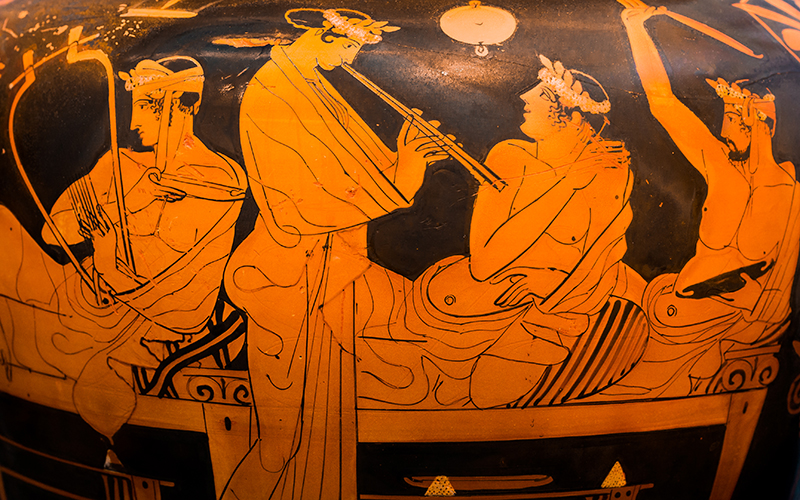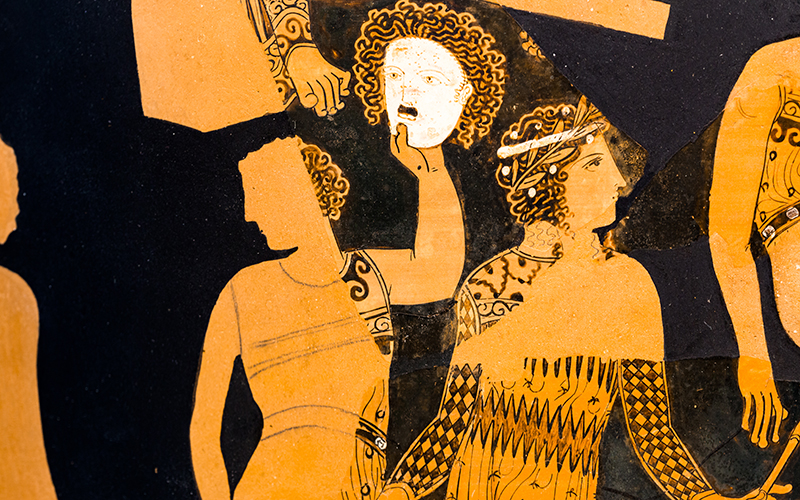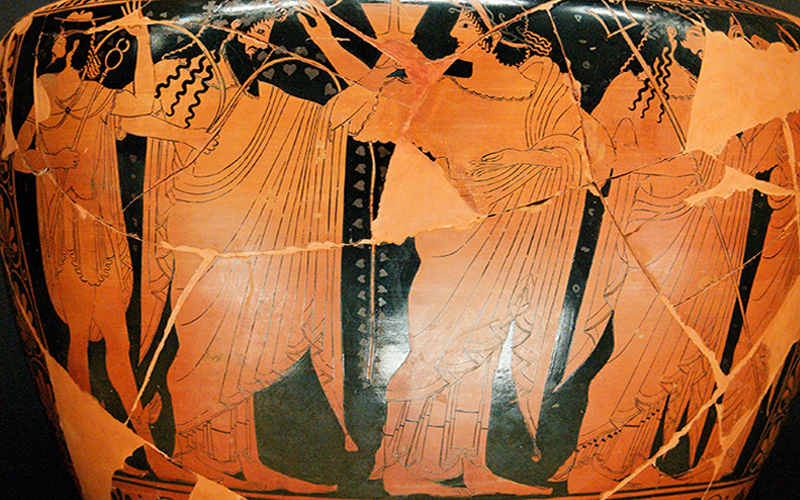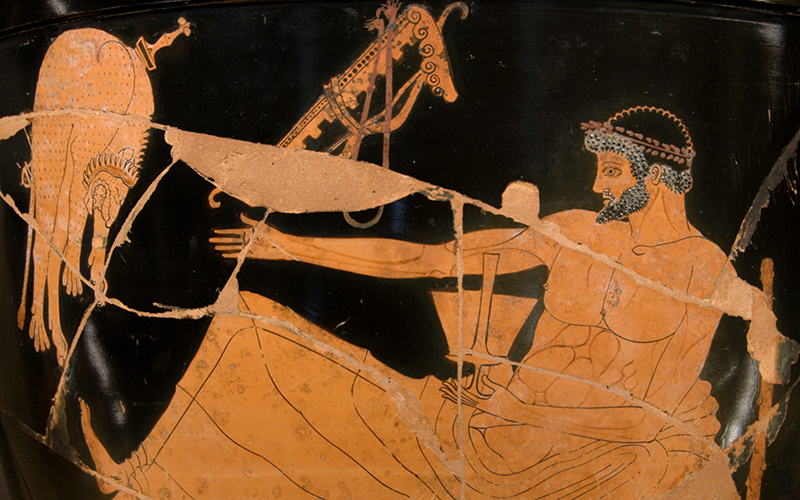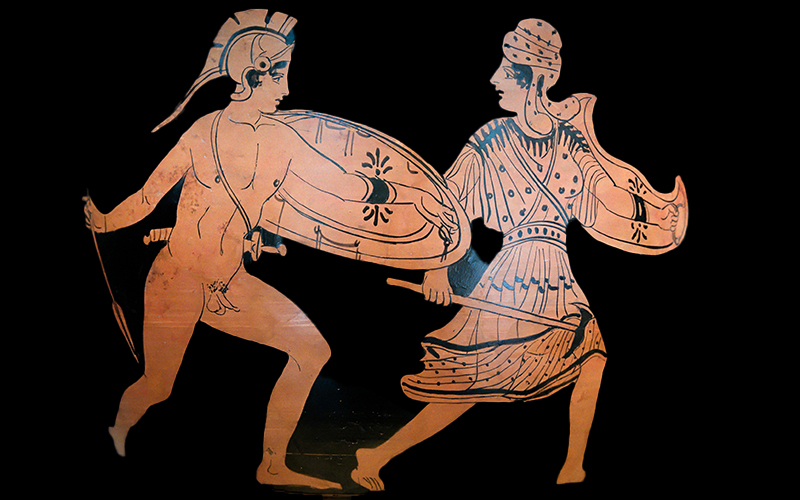




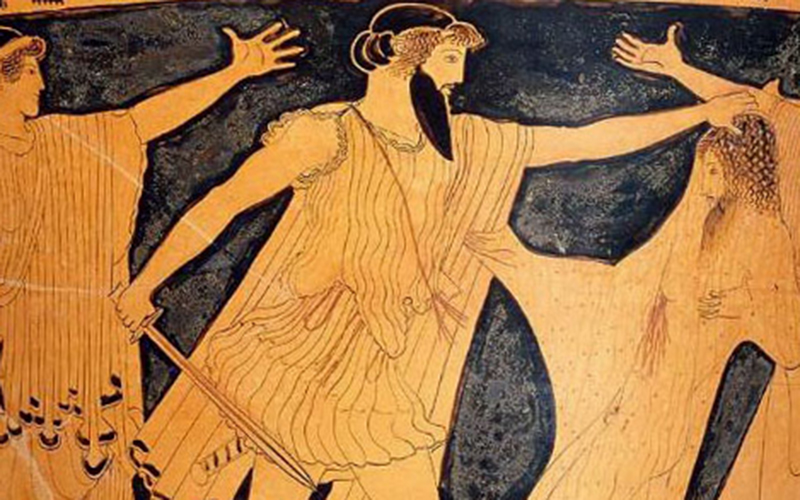
Agamemnon, Welcomed as a Hero Upon His Return from the Trojan Expedition, Was Killed in His Palace
Upon his long-awaited return to Mycenae, Agamemnon, the victor of Troy, was greeted with great ceremonies. He was received at the gates of the palace by none other than Queen Clytemestra herself. During the welcoming event, the chorus sang of Agamemnon’s heroics and the Achaean army’s glorious victory at Troy.
However, triumph did not favor Agamemnon for long. The moment he stepped inside his palace, a piercing death cry rang out, and word of Agamemnon’s murder spread like wildfire through Mycenae.
A formal statement from the palace soon confirmed the news of Agamemnon’s death. The announcement revealed that King Agamemnon had been slain by Queen Clytemestra, who had carried out the act with the aid of her lover, Aegisthus.
Shortly after, Queen Clytemestra emerged before the palace and openly justified her actions. Displaying remarkable composure, she recounted the meticulously planned murder.
"I wrapped him in a dazzling, richly embroidered robe… Twice I struck, and twice he groaned. His limbs gave way, drained of strength. As he lay motionless, I delivered the third and final blow,"she declared.
According to a palace servant who wished to remain anonymous, Agamemnon and Clytemestra’s daughter, Electra, had secretly smuggled her younger brother, Orestes, out of the palace immediately after the assassination, sending him to an undisclosed location. Rumors suggest that Electra feared Aegisthus would have the young Orestes killed before he could come of age and avenge his father’s murder. Another prevailing theory is that Electra had far greater plans—that when Orestes grew older, she would join him in exacting revenge upon both Clytemestra and Aegisthus for Agamemnon’s death.
Meanwhile, the Mycenaean elite appear largely unconcerned by Agamemnon’s assassination, believing that his prolonged absence during the Trojan War had already distanced him from governance. Many argue that the king’s rule had long been nominal, and his murder would do little to shake the administration of Mycenae.
